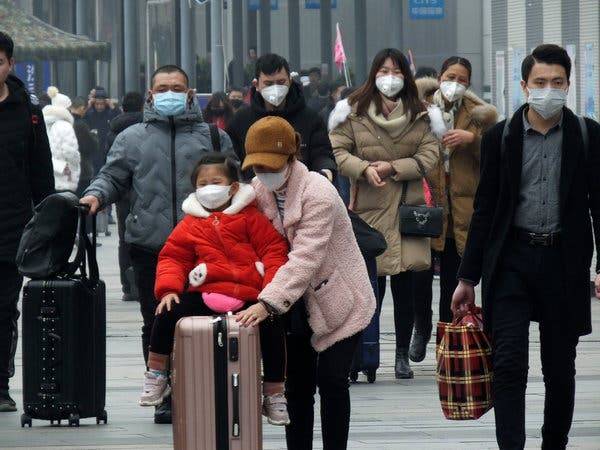Coronavirus disease (COVID-19)
About 858 people have died from Middle East respiratory syndrome (MERS), which first appeared in 2012 in Saudi Arabia and then in other countries in the Middle East, Africa, Asia, and Europe. In April 2014, the first American was hospitalized for MERS in Indiana and another case was reported in Florida. Both had just returned from Saudi Arabia.
In May 2015, there was an outbreak of MERS in Korea, which was the largest outbreak outside of the Arabian Peninsula. In 2003, 774 people died from a severe acute respiratory syndrome (SARS) outbreak. As of 2015, there were no further reports of cases of SARS.
But in early 2020, following a December 2019 outbreak in China, the World Health Organization identified a new type, 2019 novel coronavirus (2019-nCoV).
Often a coronavirus causes upper respiratory infection symptoms like a stuffy nose, cough, and sore throat

Human coronaviruses most commonly spread from an infected person to others through
- the air by coughing and sneezing
- close personal contact, such as touching or shaking hands
- touching an object or surface with the virus on it, then touching your mouth, nose, or eyes before washing your hands
How to protect yourself
There are currently no vaccines available to protect you against human coronavirus infection. You may be able to reduce your risk of infection by doing the following
- wash your hands often with soap and water for at least 20 seconds
- avoid touching your eyes, nose, or mouth with unwashed hands
- avoid close contact with people who are sick
Treatment
There are no specific treatments for illnesses caused by human coronaviruses. Most people with common human coronavirus illness will recover on their own. However, you can do some things to relieve your symptoms
- take pain and fever medications (Caution: do not give Aspirin to children)
- use a room humidifier or take a hot shower to help ease a sore throat and cough
- If you are mildly sick, you should
- drink plenty of liquids
- stay home and rest
Note:
- If you are concerned about your symptoms, you should see your healthcare provider.
- 2019 novel coronavirus spread from infected person before showing signs
- 2019 novel coronavirus has 1 – 14-day incubation period.
- Since the break out all deaths have been in China – the vast majority in Hubei province.
- The virus has spread to many Asian countries, as well as Australia, Europe and North America. Nearly all of the dozens of cases outside China are among people who recently travelled from there.
- WHO chief Tedros Adhanom Ghebreyesus has said the decision to hold off on issuing the declaration used for the gravest epidemics should not be taken as a sign that the body does not think the situation is serious. “This is an emergency in China, but it has not yet become a global health emergency,” he told reporters.







Leave a Reply
Want to join the discussion?Feel free to contribute!